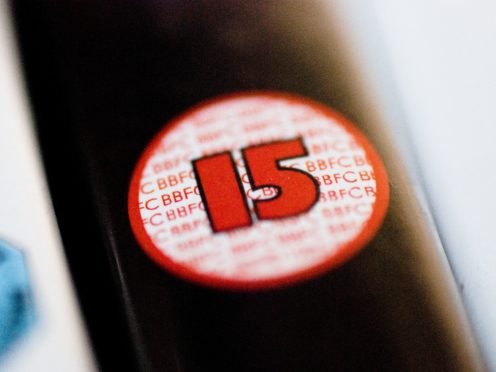Film censors have promised to rein in the “pornification of culture”.
Experts have suggested that UK audiences may have reached a limit in the “liberal” use of sex in cinema and TV.
New guidelines have been issued for film classification in response to public concerns about sex on screen.
The British Board Of Film Classification (BBFC) has announced that the creeping-in of pornographic themes to popular culture is of major concern to the British viewing public.
Research by the BBFC found that sexual violence and depictions of “credible real-life scenarios” were increasingly worrying for audiences, particularly younger viewers.
But censors have cautioned against the notion that film is inevitably becoming increasingly liberal, and that British culture may have reached a high-water mark in its tolerance of sexual scenes.
The animated comedy Sausage Party was singled out as an example of where cinema has borrowed from the world of porn.
The new guidelines prescribe higher age ratings for works with sexual violence, darkly realistic themes, and films steeped in the “language of pornography”.
Speaking at their launch in London, BBFC head of compliance Craig Lapper said: “I think there’s a tendency for people to assume that everything must be increasingly more liberal.
“It always has that possibility of reaching a point and going the other way.”
He added: “Public views are changing. This partly comes from the pornification of culture and whether almost borrowing from porn, cruder, stronger and harder sexual references are making their way into mainstream entertainment.
“I think it’s about the borrowing of themes and images from porn, and the visuals of pornography. It’s all more available than it used to be when you had to go into a sex shop.
“One film was Sausage Party. We had a lot of feedback. We heard from all sort of people about that, including teenagers. Of course they had watched it.
“There is a scene in the film where animated vegetables engage in an orgy. It’s crude.
“Actually perhaps they (the public) feel that we need to rein it in. I think it’s just the because it’s so widespread and available.”
Research by the BBFC showed that, for the 10,000 people surveyed, sexual violence was the major concern, with 86% of teenagers citing such themes as the most problematic. After this, regular sexual content was the next biggest concern.
Mr Lapper said the availability of porn online had seeped into popular culture, and there was concern among parents and teachers about its spread.
He believes the main reason for the backlash against sexuality on screen is the ease with which it can be accessed online.
BBFC research showed that 92% of teachers were concerned about the material their pupils were viewing online.
